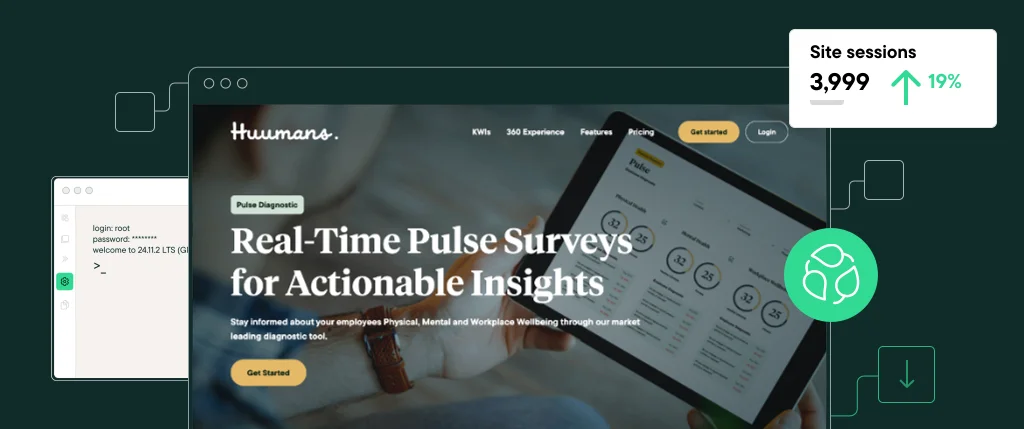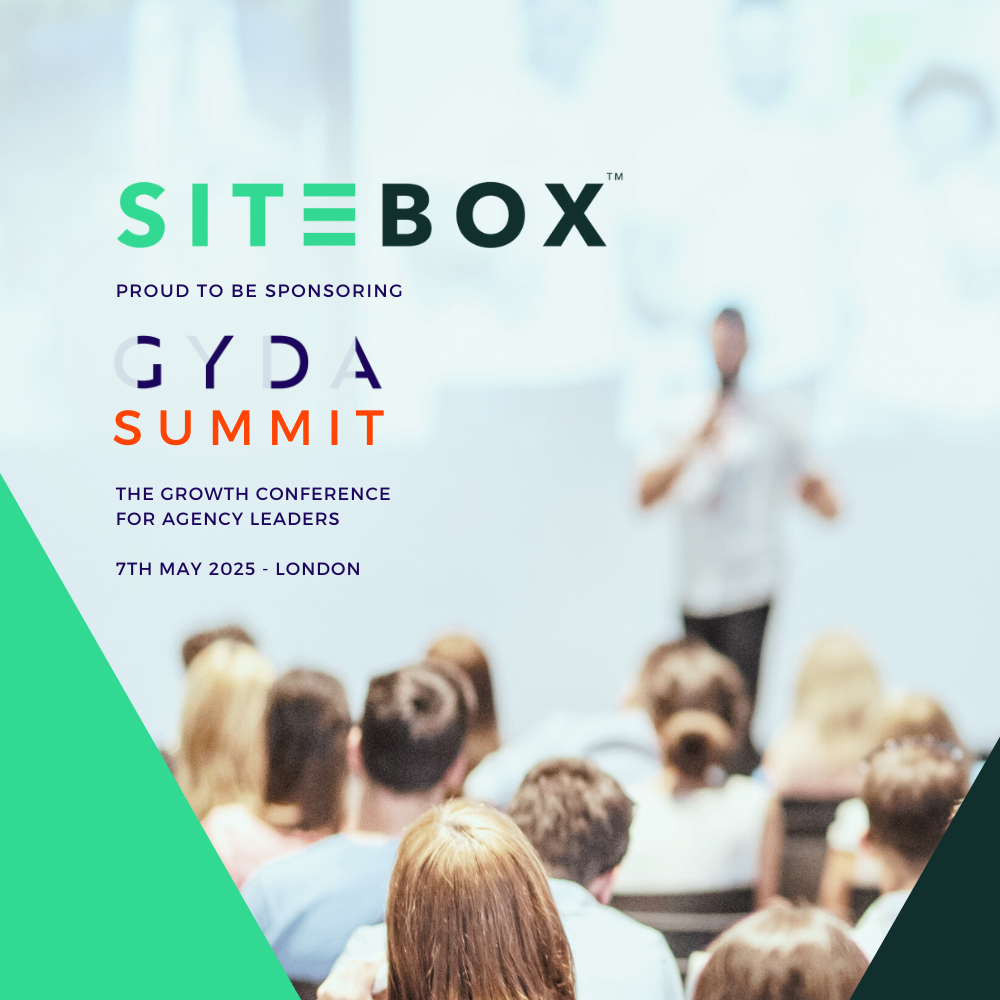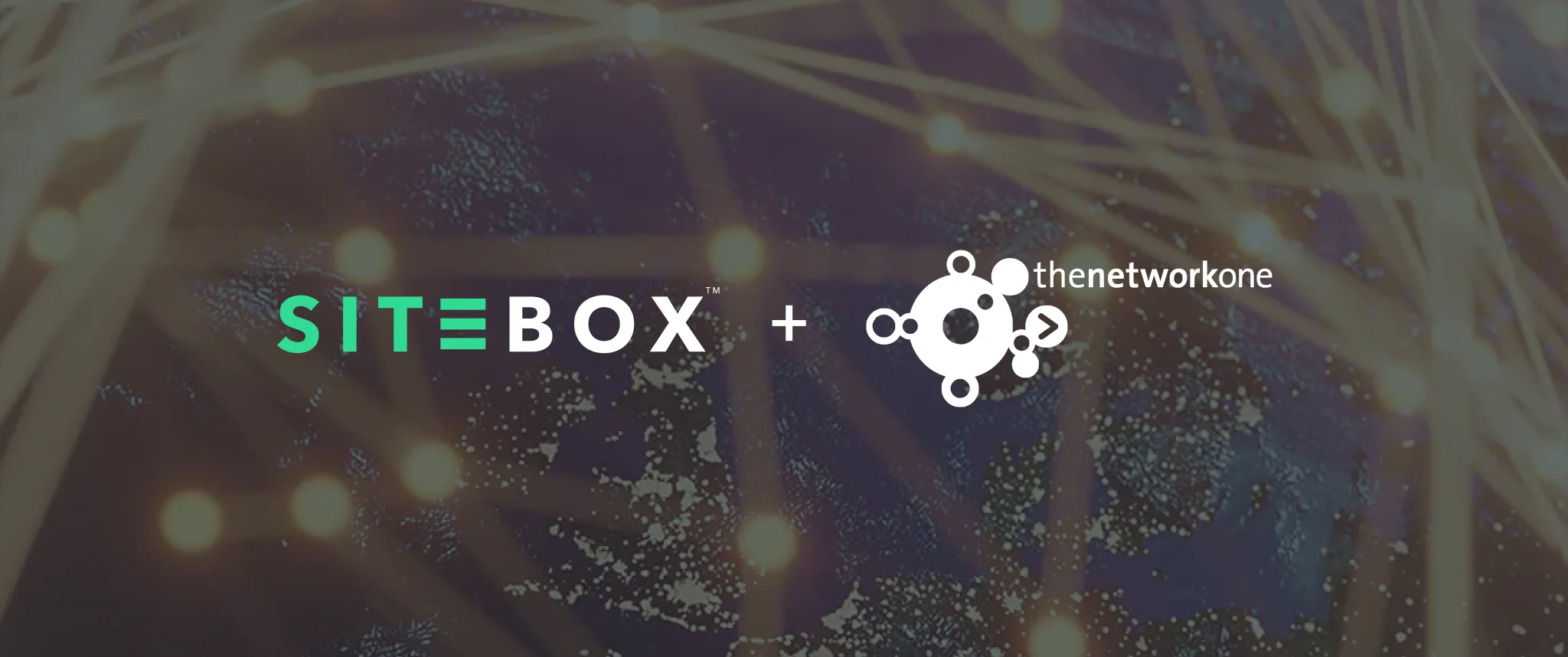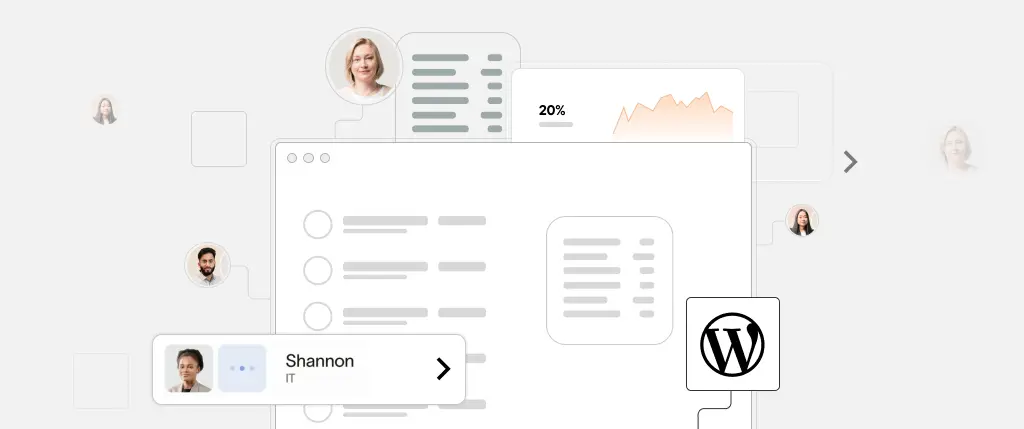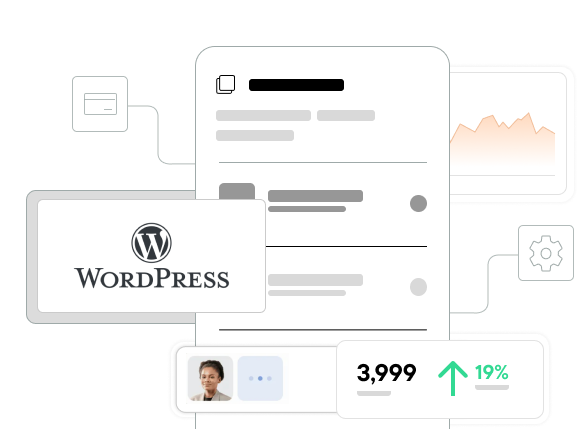Digital agencies are at the forefront of delivering engaging, personalised, and conversion-focused web experiences for their clients.
But with technological capability advancing at an alarming rate, continuous adaptation is the only way to stand out among the (heaving) crowd, and achieving these goals comes with its own specific set of tricky challenges; namely, managing content at scale, maintaining site security, and meeting performance expectations.
But we’ll explore how Headless hosting in WordPress can be a game-changer for web developers, content creators, project managers and support engineers within digital agencies, offering insights and strategies to harness its power effectively.
Headless, in short
A Headless content management system (CMS), as the name suggests, takes a content-first approach in separating the content management from the content presentation. This is called decoupling: where the backend content repository is ‘decoupled’ from the frontend interface. This allows for more scalable, faster, and flexible options to build and manage content-rich websites.
Agency teams face distinct yet interconnected issues that can impede productivity and the ability to innovate, which is where Headless steps in.
Web Developers: The Challenge
Much of the time for developers is taken by constantly tweaking a site to optimise performance, site speed and security that can have knock on effect for the user experience. Developers are also under constant pressure to create websites that not only look good but perform at optimal levels. Managing the front-end of a site built on a traditional CMS can lead to bloat, slow page loading, and less adaptability in design and infrastructure changes over time.
Web Developers: The Solution
With Headless decoupling the interfaces, developers are given the flexibility to use the programming languages, frameworks, and libraries of their choice without being tied to the limitations of a traditional CMS. With full control, it’s easier for them to fix any issues impeding site speed and performance, and this maintains a more fluid design process.
Content Editors: The Challenge
One website is tough to manage, let alone multiple. And what about other platforms for displaying blogs, images, or videos? Being able to manage a diverse pool of content, and deliver it across various channels, provides sticky situations for content creators. On a monolithic traditional CMS platform at least, where non-intuitive interfaces and lack of easy-to-use tools lead to inefficiencies and stifled creativity.
Content Editors: The Solution
Headless architecture instead provides a central hub for creating and managing content that can be distributed across a myriad of platforms, from websites to mobile apps. This makes it optimal for achieving an omni-channel content strategy, where brand consistency reigns.
Support Engineers: The Challenge
In their crucial WebOps role, support engineers have to navigate problems regarding security and troubleshooting. Time-consuming updates, patching, and security checks within a traditional CMS model can divert resources away from providing optimal client support.
Support Engineers: The Solution
Instead, Headless WordPress alleviates many of the concerns around security. Regular updates and security patches are handled, keeping the system current and up-to-date, as well as being far easier to maintain.
Project Managers: The Challenge
Project managers must wield a diverse array of project management tools to chart smooth waters for a web development project, from idea to creation to deployment, to deliver fresh and engaging digital experiences.
Project Managers: The Solution
Headless’ decoupling element offers project managers a streamlined approach to managing workflows. Separating the content management layer from the presentation layer lends itself to an agile approach to in content creation, editing, and distribution without being constrained by the frontend design, where project overseers can manage content updates and collaborate with team members in real-time.
3 actions for the Headless approach:
- Use content APIs: web developers can access content from the CMS and deliver it to any number of digital platforms, streamlining the workflows for updating site content.
- Use editing tools: all content can be collaborated on using customisable tools designed for specific roles in an agency, leading to better quality websites and a happier, efficient team.
- Be compliant! Great hosting providers can maintain infrastructure shifts, but it’s crucial for agencies to remain vigilant about best security practices and make sure that all compliance regulations are adhered to.
With the right understanding, planning, and execution, Headless hosting can enhance the output of the teams pitching into a digital build project, ushering in a new era of digital prosperity!
If you’d like to know more about spinning up a Headless WordPress instance, we’re here to help.
